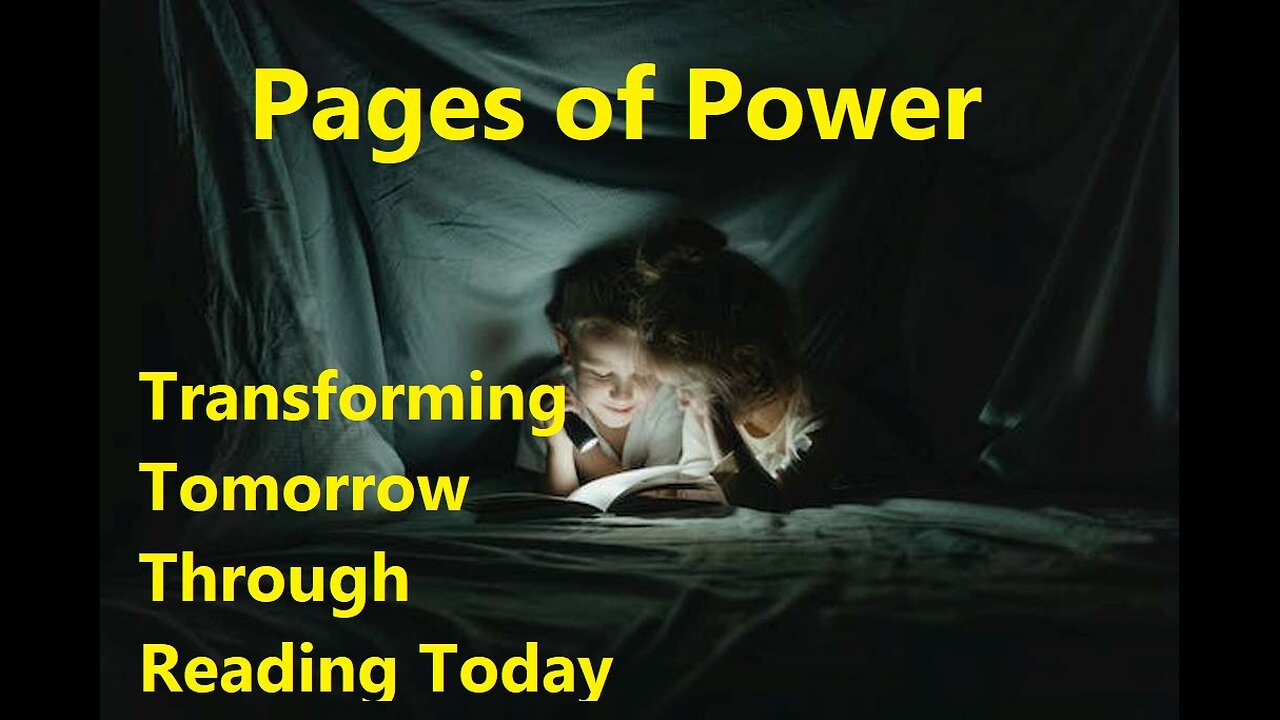Premium Only Content

Pages of Power: Transforming Tomorrow Through Reading Today
1. Technological Distractions: The pervasive use of smartphones, tablets, and other electronic devices has led to children spending more time on screens, diverting their attention away from traditional reading activities.
2. Lack of Role Models: Children often mimic the behavior of adults around them. If parents or caregivers are not avid readers, children may not see the importance of reading and may not develop a reading habit.
3. Busy Lifestyles: Over-scheduled routines with numerous extracurricular activities and homework leave children with limited leisure time. Reading may be perceived as a low priority in comparison to other activities.
4. Instant Gratification Culture: In an era of quick information access and instant gratification, some children may find the slower-paced process of reading books less appealing than more immediate forms of entertainment.
5. Educational System Pressure: An education system focused heavily on standardized testing and academic achievement might prioritize rote learning over fostering a love for reading, leading children to associate reading with a chore rather than enjoyment.
6. Limited Access to Books: Economic factors or living in areas with limited access to libraries and bookstores can hinder children's exposure to a variety of reading materials.
7. Preference for Visual Media: The rise of visually stimulating media, such as video games and streaming services, may attract children more than the immersive world of books, contributing to a decline in reading interest.
8. Peer Influence: In some cases, children may be influenced by peers who do not value or engage in reading, leading to a social stigma around being a reader.
9. Ineffective Reading Programs: If reading programs at schools are not engaging or fail to capture the interests of children, they may not develop a positive attitude towards reading.
10. Unawareness of Future Losses: Children may not realize the long-term consequences of not cultivating strong reading skills. Poor reading habits can impact academic success, critical thinking abilities, and overall cognitive development, potentially limiting future career opportunities and personal growth.
The losses children may not see in the future include missed chances for intellectual stimulation, reduced vocabulary and communication skills, diminished creativity, and a potential disadvantage in academic and professional pursuits that rely on strong reading abilities.
-
 LIVE
LIVE
LFA TV
10 hours agoBREAKING NEWS ALL DAY! | WEDNESDAY 9/24/25
4,776 watching -
 LIVE
LIVE
Crypto Power Hour
1 hour agoYour Crypto Guide To Decoding The Lingo
104 watching -
 1:24:22
1:24:22
JULIE GREEN MINISTRIES
3 hours agoLIVE WITH JULIE
67.7K149 -

The Chris Salcedo Show
13 hours ago $3.20 earnedThere Is No Cure For TDS...Except Total Conservative Victory!
24.6K9 -
 20:39
20:39
Producer Michael
20 hours agoEXCLUSIVE PAWN STARS SHOP TOUR WITH RICK HARRISON
82.4K3 -
 14:47
14:47
World2Briggs
18 hours ago $2.50 earnedShocking but True: The 10 States Leading in Murder
25.2K18 -
 8:30
8:30
Faith Frontline
15 hours agoPriest Reveals TERRIFYING Emily Rose Exorcism Details Nobody Talks About
23.2K15 -
 10:54
10:54
NAG Daily
16 hours agoMike on a Bike #5 - Charlie
21.6K12 -
 11:07
11:07
Ken LaCorte: Elephants in Rooms
16 hours ago $0.97 earnedWhy Do Black Athletes Dominate?
20.6K24 -
 2:01:45
2:01:45
BEK TV
1 day agoTrent Loos in the Morning - 9/24/2025
20.8K1